Alyce Blyth started quilting about seven years ago when her husband bought her a little $100 Elna and she embarked on a mission to make her children each a quilt for their fifth birthdays. Alyce taught herself how to quilt both from blogs and books, as well as through determination and experimentation. About a year later, her family moved from Australia to Japan. With the move, came time and the desire to connect with others; and so, Blossom Heart Quilts began, as a way for Alyce to document her makes and to share what she’d learned with others. Since then, Alyce and her family have moved back to Australia, and Alyce has continued to grow her business. She became a columnist for Make Modern Magazine, and began writing books. DIY Block Design was released in 2015, and her second book is due out in 2019 with Lucky Spool. In addition, Alyce was a Craftsy columnist, is a Pfaff Associate, an Aurifil Artisan, an AccuQuilt Associate, and an EQ8 Artist. Alyce continues to write patterns, to teach classes at local quilt stores, and to be a member of her local Modern Quilt Guild. Welcome, Alyce!
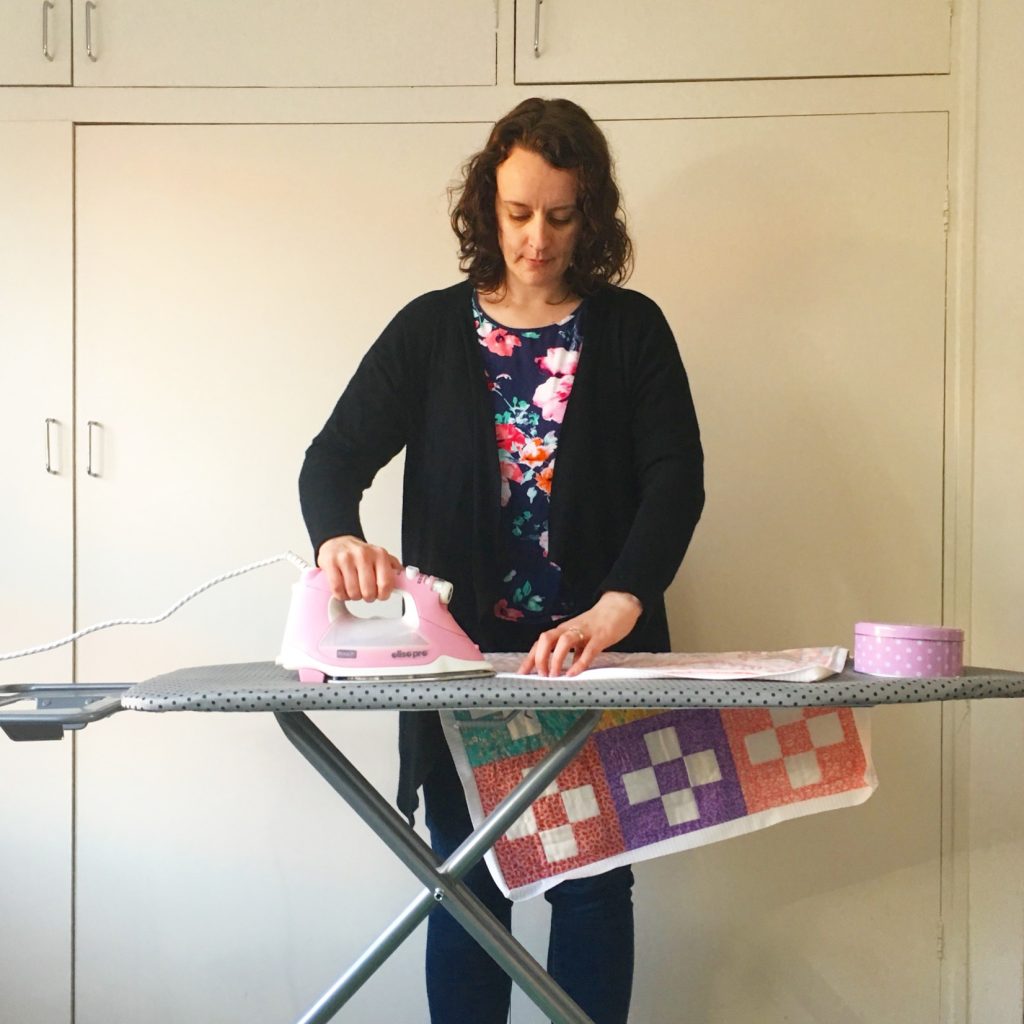 How would you describe your quilting style/aesthetic?
How would you describe your quilting style/aesthetic?
Alyce: My quilting style neatly fits into the label of “modernitional” – I love block-based designs, but making them a bit fresher and more modern by using modern quilting fabrics and by playing with colour. Often, I also try to add thoughtful touches where I can, whether that’s tailoring the fabric prints in the quilt for the intended recipient, or just having fun with fussy cutting!
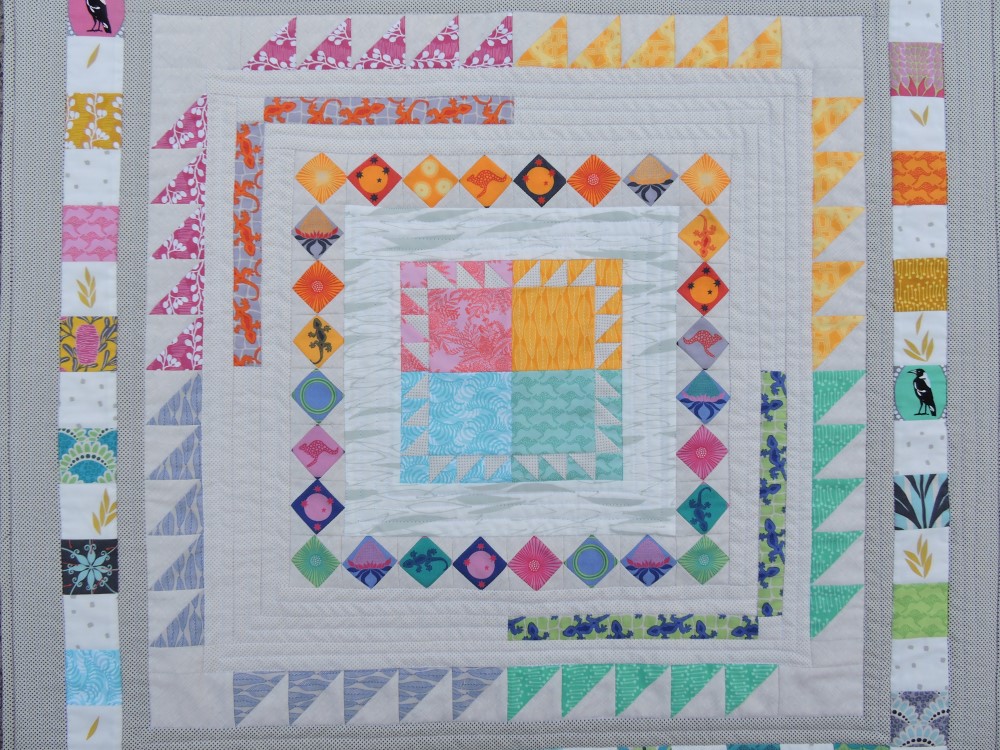
Made Modern in Australia medallion quilt. Image courtesy of Alyce Blyth.
How would you describe the creative environment in your home as a child?
Alyce: Growing up, I was constantly creating, whether it was making patterns with wooden blocks as a pre-schooler, using cardboard boxes for all sorts of magical creations as a kid, or dabbling in scrapbooking, beading, and cardmaking as a teenager. My mum sewed a little bit, particularly cross-stitching, and her side of the family were big on sewing, so it’s definitely in the genetics there somewhere!
What artists and makers do you most admire or have an influence on your work?
Alyce: I don’t find that I’m particularly influenced by many artists, but rather, I find that I’m most drawn to and inspired by makers who are in similar life situations as myself –mothers (whether stay-at-home mothers, or are in the business, or have a job) who carve out time to sew because it’s important to them to create. They inspire me to keep creating, even when life gets busy, because it’s worth it! It’s impossible to list them all, but a few of my fellow Aussies that inspire me the most include Caitlin Polden, Sedef Imer, Jane Pipke, and Jemima Flendt.
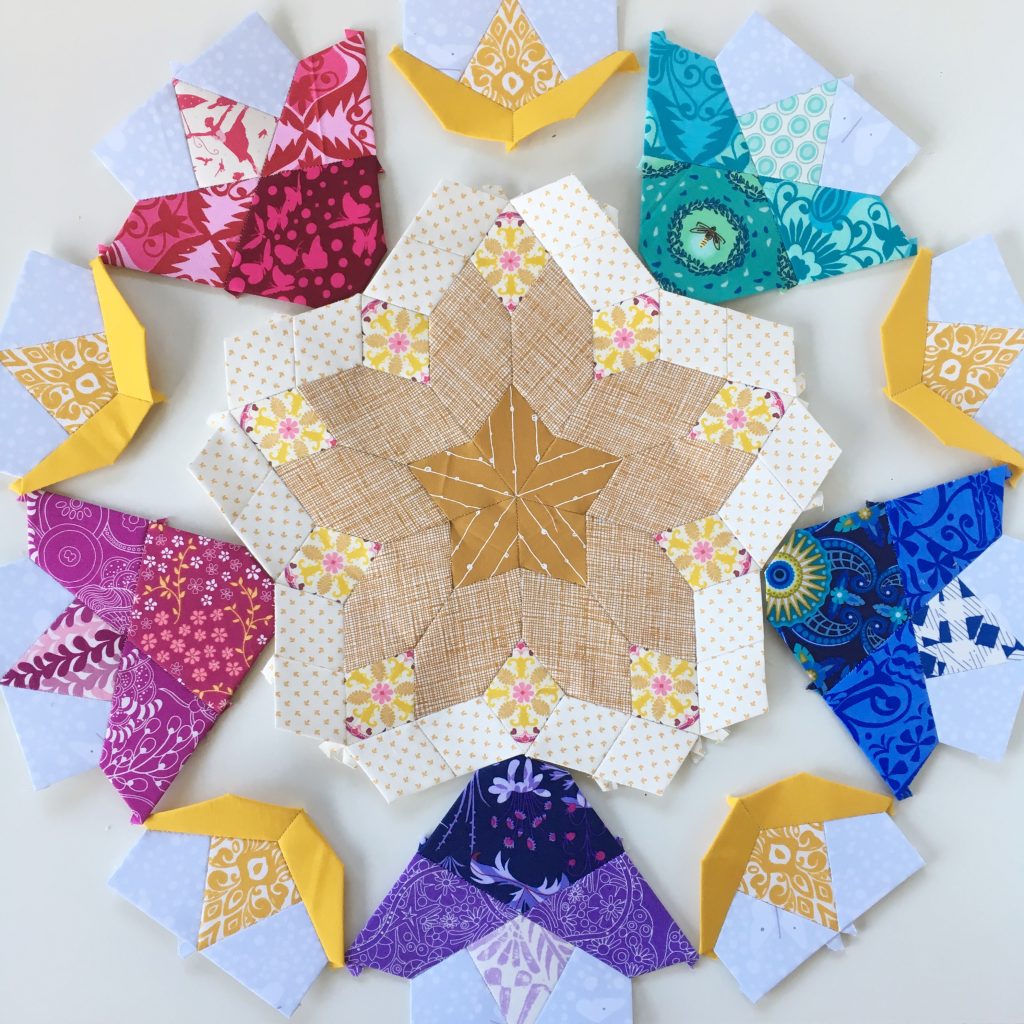
Alyce’s Pollinate Quilt, an English Paper Pieced pattern by Kitty Wilkin and Karen Tripp. Image courtesy of Alyce Blyth.
Do you consider yourself a “quilter”, an artist, or some combination of both?
Alyce: I would consider myself a quilter, who sometimes makes art. That’s not to discount the beautiful artistry of my “quilting”! But rather that most of my work is made to be a quilt, to be used and loved and snuggled in by family and friends. Though there are a few quilts that I have made (or am in the middle of making) that have been made to tell a story or to explore a concept artistically through the medium of quilting.
How would you define “making with intention”?
Alyce: I think making with intention harks back to my first response – adding thoughtful touches where I can, and/or personalising a pattern to make it my own. It’s something that I encourage those who make my patterns to do so as well. Make it their own, i.e. use two prints instead of three because they want to show off more of one particular fabric. Be thoughtful about what you are creating, take time to consider what fabrics to use, make the effort to go that extra mile and fussy cut.
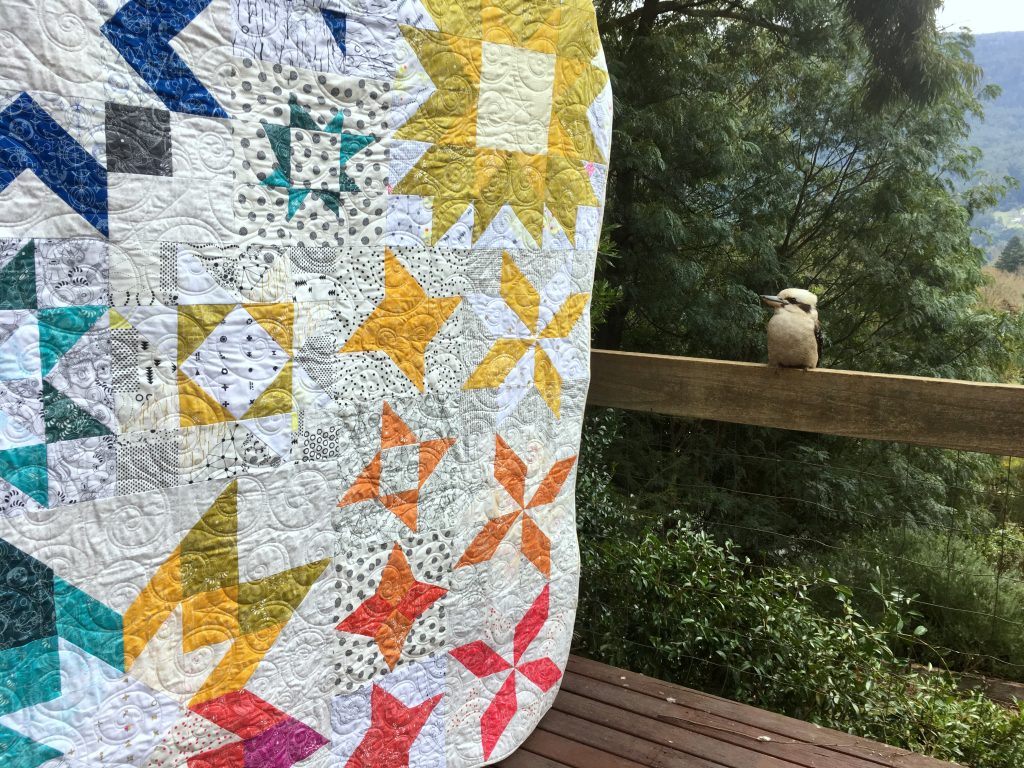
Alyce’s Aurora Block of the Month sampler quilt, using Alison Glass fabrics. Image courtesy of Alyce Blyth.
Do you think that having a craft makes us more compassionate? If so, then how?
Alyce: As a business owner in this industry, and thus dealing with a wide variety of customers, I can say for certain that compassion and empathy aren’t inherent qualities in quilters, ha! But I would say that having a craft makes us more appreciative of handmade, and as such, giving handmade is a big expression of our love and care.
How does creating feed your soul/spiritual purpose?
Alyce: I believe that everyone is inherently creative, whether they express that via building houses, or designing science experiments, or making game plays on the football field. For me, I express my creativity through quilting and design, and doing so fills up my heart; it “answers the calling”.
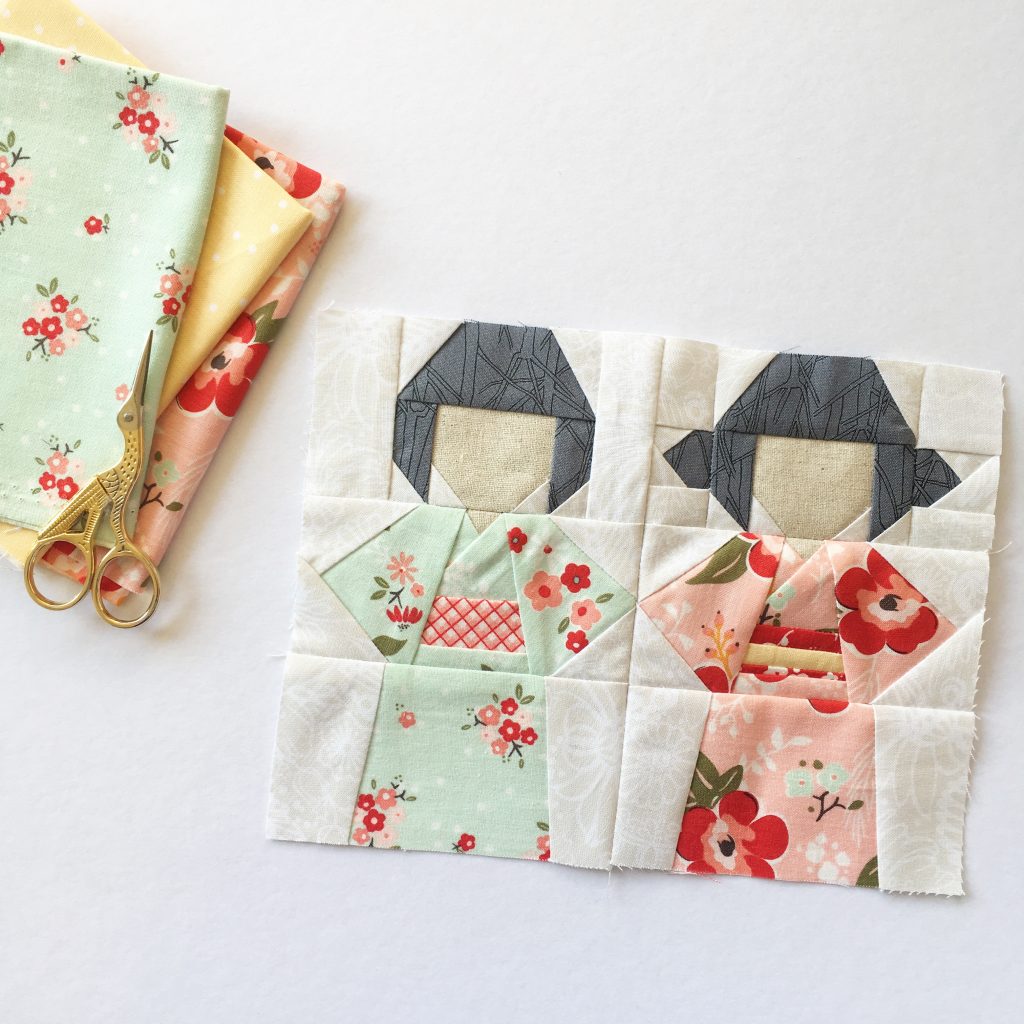
Kokeshi quilt block pattern. Image courtesy of Alyce Blyth.
Are there any rituals that you perform to prepare/ground yourself in your work?
Alyce: Well, for starters, there’s the clearing of the chair and the desk! My sewing space is situated along one wall in our bedroom, so the chair usually has a jacket or two draped over it, as well as a quilt top or some other WIP (or fabric) folded on the seat. And with limited storage space, there’s always a couple of project tubs stacked on the desk. So, I will make the bed, if it wasn’t already made, and then clear up my sewing space onto the bed!
In the lead up to my sewing time, I also ponder what I’m in the mood for listening to – music, a podcast, or Netflix. Which one I choose really just depends on the day, and whether I’m chain piecing 20 patchwork blocks, or working on a fiddly foundation paper pieced block. The other key component is making sure there’s a bottle of water nearby, as it’s important to stay hydrated.
What is the support system you have in place for creating your work?
Alyce: In terms of making time for my sewing, my family is completely supportive. Now that both children are in primary school, and very independent, I am free to sew during school hours, or after school, or at night, or on the weekends. I often joke that my husband is the head chef in this household, so it’s not unusual for him to be cooking in the kitchen on a Sunday afternoon while the kids play a video game together and I’m sewing.
But I would be remiss to not mention my local quilting friends. Whether it’s the friends who helped me with cutting for my book projects earlier this year, those who I go on retreat with every year, or my friend who hosts a few of us every other Friday afternoon for lunch and stitching, I am the most productive and content at sewing when I’m doing it with friends.
How do you deal with comparison to / envy of others? Can you describe a time when you used comparison/envy/admiration to push yourself in your own work and self-discovery?
Alyce: By closing Instagram, ha! I’ll be honest and say that it is something I battle with off and on, but I ground myself back in reality by taking a look at my life and asking/reminding myself that I like my life as it is. I generally feel that I have a good, finely balanced life for what works for our family. And if I was to try and do XYZ, that balance would tip unhealthily right now. I’m in this for the marathon, not the sprint! There are only so many hours in the day, and as long as I’m making the most of them, then I’m doing good.
As for a time when it’s pushed me… The closest story that comes to mind is my Spanish Farmer quilt project. It started off as a sew along to the 1930s Farmer’s Wife book, and while I had my own twist on it by making the blocks with low contrast between the monochromatic prints used, I felt the pressure from having been one of the official bloggers sewing along to stick to the book. I felt the pressure to keep up, even though I was no longer enjoying the blocks.
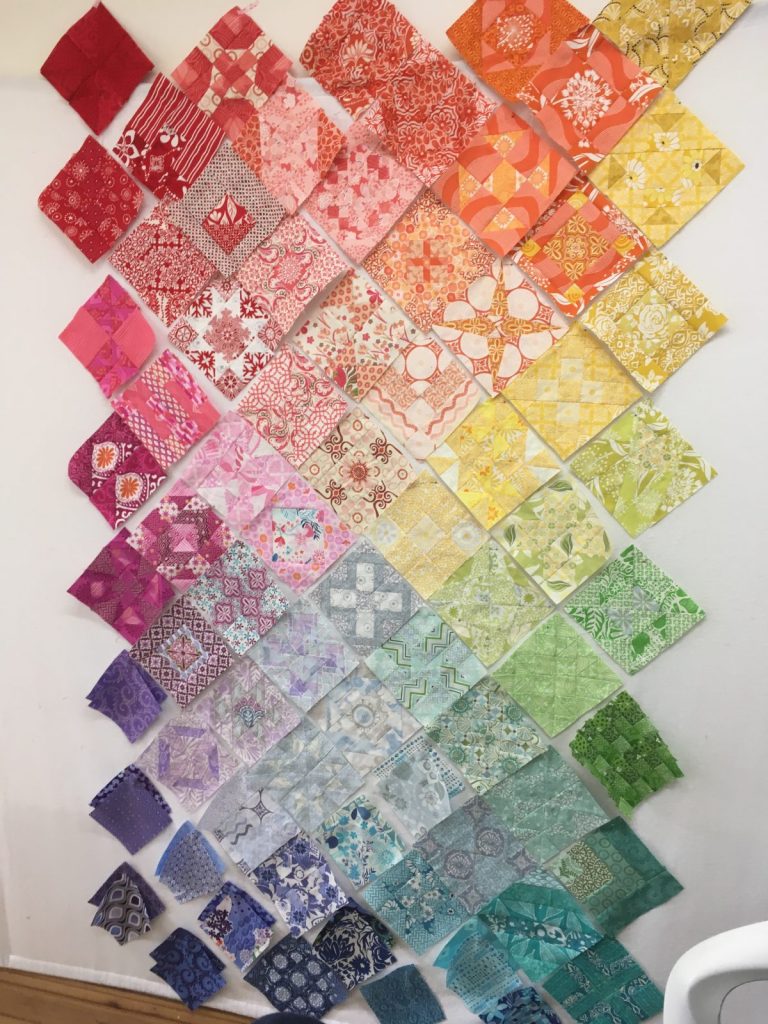
The Spanish Farmer quilt on the design wall. Image courtesy of Alyce Blyth.
What was the most challenging thing you ever made?
Alyce: While not the most challenging technically, I would say that my Tula Pink City Sampler quilt was the most emotionally challenging. But also, the most emotionally rewarding project! It’s a king-sized quilt for our bed and is full of fabric prints that are sentimental to our family, and especially my husband and me. Almost every one of the 100 blocks were “made with intention” aka fussy cut, which meant hours of finding, choosing, and carefully cutting fabrics. I also designed the sashing fabric with my husband, by translating our wedding vows and scriptures, and some other meaningful texts, into Japanese and laying it out like a newspaper. The day that package arrived from Spoonflower was definitely one of the highlights of my quilting journey!
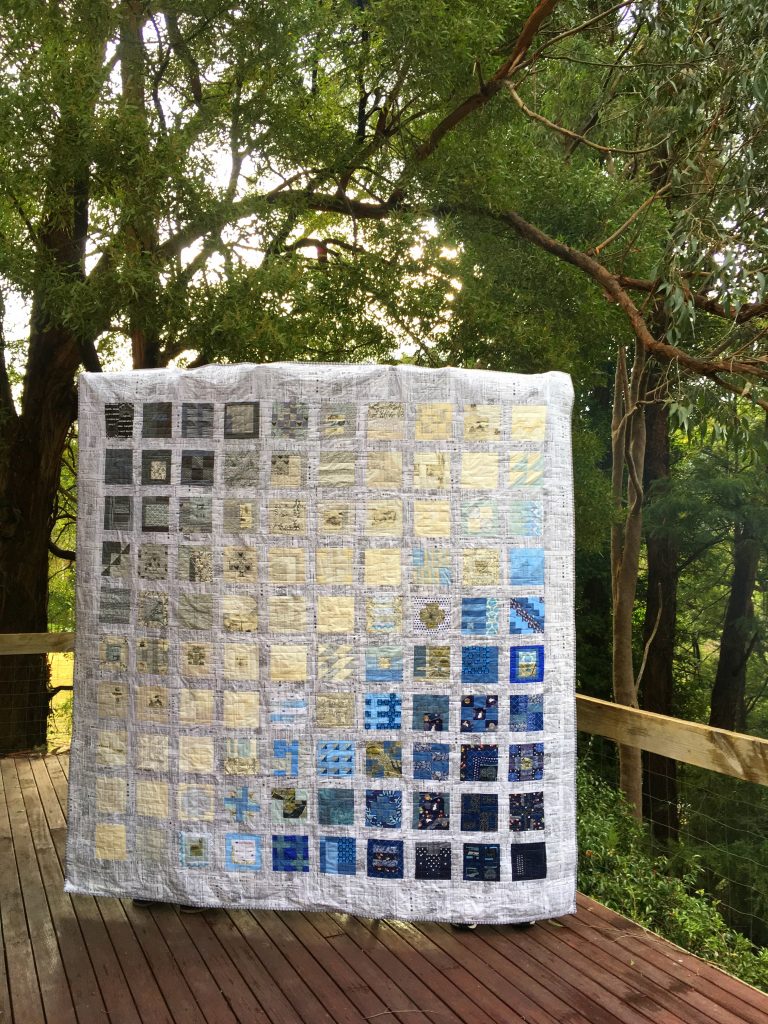
Alyce’s Tula Blue quilt made from the pattern in Tula Pink’s City Sampler book. Image courtesy of Alyce Blyth.
What does it mean to you to work in a traditionally domestic medium that historically has been regarded as predominately female (aka “women’s work”)?
Alyce: I have a few thoughts around this topic.
For a start, there’s the fact that this traditionally domestic medium is my job, and when people find out about it, their responses fascinate me. Mostly, they don’t realise that quilting could be a job beyond selling physical quilts! But then their initial response is often followed by, “Oh! My mum/aunt/grandma is a quilter!”. Oh yes, there are a lot of us out there, and yes, predominantly female. And there’s nothing wrong with that, unlike the patronising manner in which the phrase “women’s work” can be spoken.
But quilters aren’t just female, and one of my closest quilty friends is a male. We’ve had several discussions on this topic, and he acknowledges that he has an advantage in this industry. Being just one of thousands of women in this industry trying to “make a living” is challenging – what differentiates me from all of them?! So, when this gender debate comes up, all I can say is good on them for capitalising on what differentiates them from everyone else.
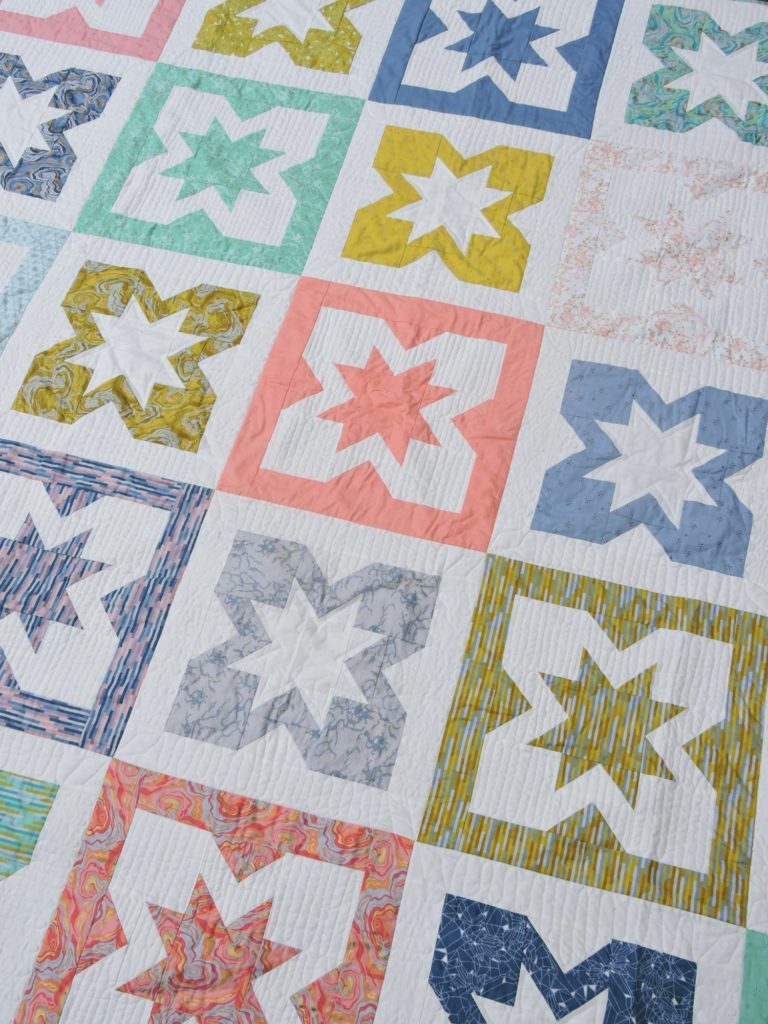
Geode quilt pattern. Image courtesy of Alyce Blyth.
How do you see your current work in the context of quilting history?
Alyce: A tiny little piece of the puzzle. I don’t see myself as, nor aim to be, some ground-breaking, world famous quilter. I would rather get to the end of my life and say that I helped spread the love of quilting to my community where I am at each point in life. To make a difference where I am planted for each season by sharing the joy of creating.
Thank you, Alyce! It was such a pleasure to learn more about you and your work! For more about Alyce, visit her website, or connect with her on Instagram and Facebook and Pinterest. To purchase any of the patterns shared in this post, visit Alyce’s shop at Blossom Heart Quilts. Sign up for Alyce’s newsletter, Behind the Quilts, for a behind the scenes look at her business.
Would you like the chance to share your thoughts on the Creativity Project? Click here to take the survey!
The Creativity Project can be found on Instagram, Pinterest, Twitter or Bloglovin’. Or check back here every Friday of 2018!
8 Comments
Comments are closed.

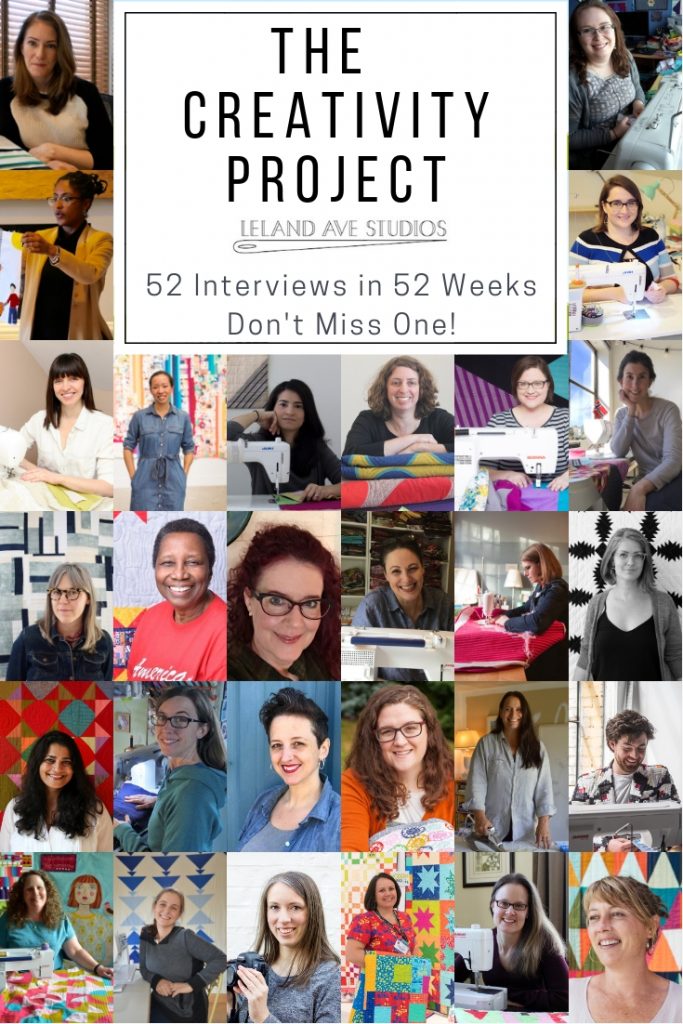
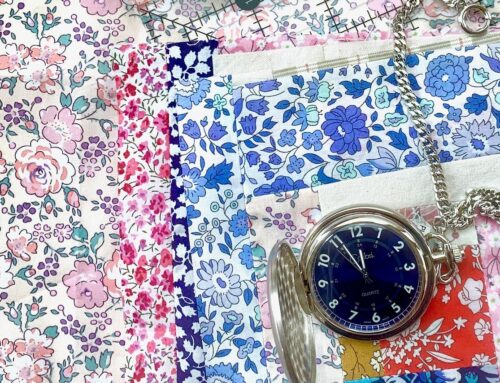
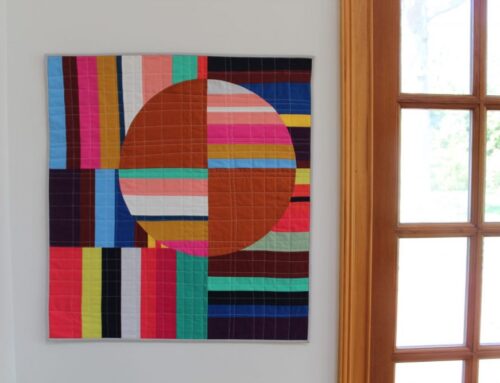
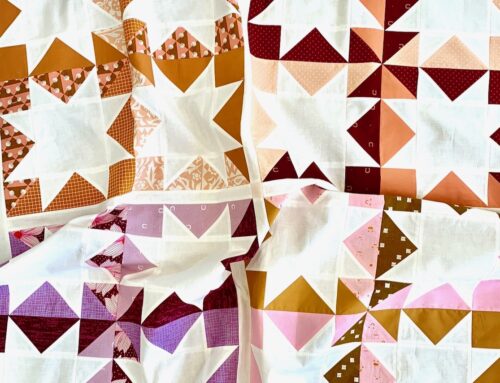

WhenI first began reading quilting blogs – maybe somewhere around 2011-2012-ish? – I found Alyce’s blog and loved it. It has been really nice to read about her adventures in Japan and then moving back home again. I love her pragmatic, yet still very creative, approach to her work. Favorite line from this interview??? “To make a difference where I am planted for each season by sharing the joy of creating.” Well said Alyce!
Thanks so much for reading Bernie! And thanks for your inspiration on this week’s Sunday quote from the interview. :-)
Thank you so much, Bernie!
Alyce was one of the first blogs I started reading and actually was the whole reason I even went on IG as I wanted to participate in the community for the first time in the quilt bee in 2017. Anyway- just still can’t believe that I am mentioned here in this interview but seriously- so glad to know you Alyce and to know more about the beautiful person behind the quilts and patterns!
Thank you for reading and for sharing your thoughts, Caitlin! This is an amazing community we have and it’s wonderful to see the way you and Alyce inspire each other.
Aw, really?! I didn’t know that! I’m glad we found each other :)
Alyce’s blog was one of the first sewing blogs I found too. I completely resonated with her experience of living as a foreigner overseas and having a need to find connections with like minded people. I love her patterns and followed along with some of her quilt-a-longs. Thanks Alyce for all the work you have put in to building community, even from afar.
Thanks Deborah for sharing your thoughts and gratitude for Alyce’s work! Love when we can tell those directly who inspire us.